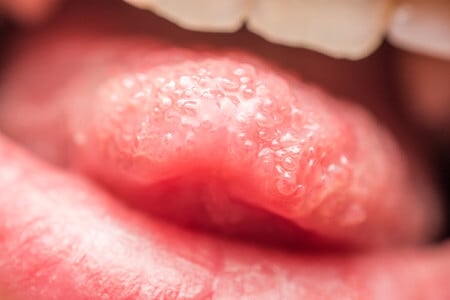Mice that were fed a high-fat diet and became obese saw a significant loss in their number of taste buds, according to a new study that has implications on the growing rates of obesity in the U.S.
Researchers from Cornell University discovered that obese mice had a taste-bud loss of about 25 percent compared to their healthy counterparts, which provides support to the emerging body of research — at this point, mostly anecdotal — that one’s ability to taste is diminished among obese people.

In the U.S., obesity rates have been on the rise for years, and more than one-third of adults, or 36.5 percent of the population, is categorized as obese, according to the Centers for Disease Control and Prevention.
The new findings suggest there may be an underlying physical mechanism, similar to addiction traits among substance abuse, contributing to the national weight trends. That is, obese people may need more food to get the same sense of fulfillment.
“Taste buds operate not only as sensors of essential nutrients but can also trigger powerful central reward from the consumption of hedonically pleasing food,” write the authors in the journal PLOS Biology.
In other words, taste buds are linked to the reward center in the brain, and when fewer taste buds can sense the depth or flavor of food, the body may seek more to satisfy the hardwired cravings. That’s what the new study found among the mouse population, and researchers theorize that the same principles apply to human beings.
“This is a potential human mechanism for getting fat,” said senior author Robin Dando, assistant professor of food science at Cornell.
“Evidence suggests that obesity from an unhealthy diet results in a powerful [metabolic] inflammatory response,” Dando said. “In mice, this response disrupts the balance of taste bud renewal, reducing how many mature taste buds these mice have. This research provides new clues about how humans might become obese and suggests a novel approach to combating obesity – looking at the taste bud itself.”
Related: Obese but Healthy? New Research Calls It a Myth
The researchers tested several types of mice to rule out other factors. They fed a normal group of mice a high-fat diet that resulted in the mice adding about 30 percent to their body weight. They fed the same diet to a group of obesity-resistant mice, which saw far less weight gain.
Despite both groups eating the same unhealthy diet, only the group that became obese saw a loss of taste buds, leading researchers to speculate that the reduction is attributed to obesity and not simply the high-fat diet. The findings align with reports from obese people about taste reduction.
“Combining those results with this new work, it’s an interesting takeaway. Our obese mice would not be getting as much input from taste,” said Dando. “If the same taste loss happens in obese humans, it’s plausible these people would be driven to eat more, or at least eat a more intensely tasting version of whatever they were eating.”
Humans average about 10,000 taste buds, which constantly renew. It’s thought that obesity disrupts the normal life cycle of taste buds.
“Our results validate a role for taste in the genesis of obesity and suggest a novel direction in the treatment of obesity,” conclude the study authors.
Richard Scott is a health care reporter focusing on health policy and public health. Richard keeps tabs on national health trends from his Philadelphia location and is an active member of the Association of Health Care Journalists.


![How To: ‘Fix’ Crepey Skin [Watch]](https://cdn.vitalupdates.com/wp-content/uploads/2017/05/bhmdad.png)












